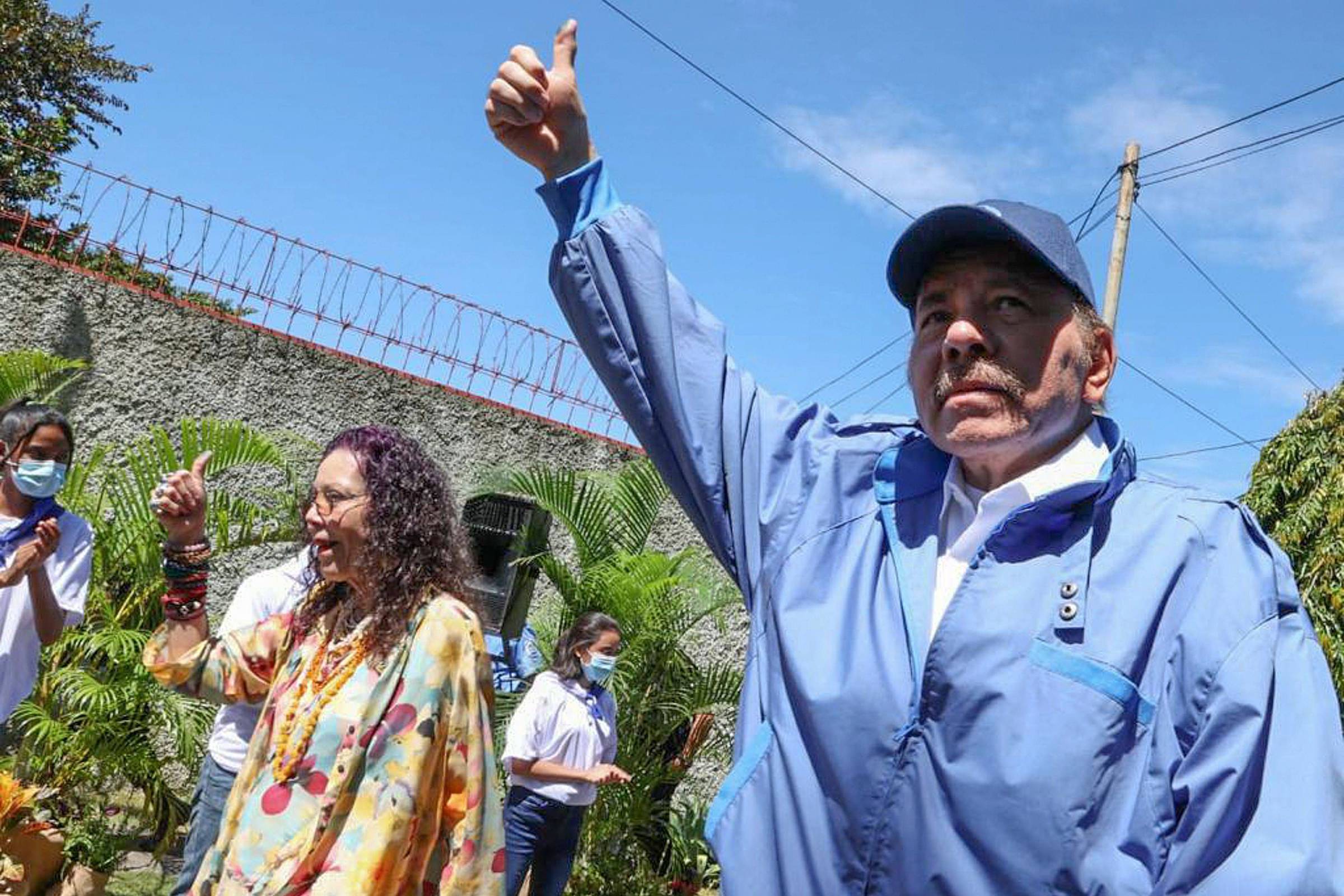RIO DE JANEIRO, BRAZIL – After methodically stifling his rivals and dissidents, Nicaraguan President Daniel Ortega ‘secured’ a quiet victory in this Sunday’s presidential election, winning a fourth consecutive term that could leave him in power until 2026.
The victory also signals that Nicaraguans have moved up a few steps toward an increasingly autocratic regime.
Sunday was marked by apathy. The voting centers were practically empty. The few registered lines were of police, military, and civil servants.
Read also: Check out our coverage on Nicaragua
With his rivals either in prison or in exile, Ortega has shown that he will not allow anyone to take power from him – he is expected to get between 60% and 70% of the vote, analysts said. The authorities have announced that they will not release results until midnight (3 a.m. today). Data on voter turnout will also not be released.

According to observers, with all opposition candidates in jail, for millions of Nicaraguans, the only possibility of showing dissatisfaction is staying away from the polls and staying home as a sign of protest.
DISCONFIDENCE
A recent poll showed that 78% of Nicaraguans see Ortega’s re-election as illegitimate, and only 9% support the ruling party.
Many, however, refuse to question the government in public for fear of being arrested or persecuted. “This is not an election, it’s a farce,” said Berta Valle, wife of one of the opposition leaders who was arrested. “No one is going to elect anyone because the only candidate is Daniel Ortega.”
To secure his fourth consecutive term in office, Ortega served a fifth term between 1985 and 1990 – he arrested any rivals who posed a threat, put opposition parties underground, and banned significant campaign events.
The commission monitoring the election was coordinated by allies. There are no election observers in Nicaragua, only so-called “electoral companions,” a mix of officials imported from Spain, Argentina, and Chile. Many of them are members of local communist parties.
“This is a turning point for authoritarianism in the region,” said Jose Miguel Vivanco, head of the Americas at Human Rights Watch, who called Ortega’s crackdown “a slow-motion horror movie.” “He’s not even trying to preserve some facade of democratic government,” Vivanco said of the Nicaraguan leader.
PRISONS
Jesús Tefel, an exiled political activist who fled to Costa Rica in July after several allies were arrested, described the election as a “farce” and called for the international community to restore Nicaragua’s democracy.
“This is a terrible precedent for global democracy. The message it sends is that you can be a dictator, and there are no consequences. That will encourage other enemies of democracy.”
Ortega first came to power after helping lead the revolution that overthrew the dictatorship of Anastasio Somoza in 1979.
More than a decade later, he lost the election but retook office in 2007. From then on, as president, he spent years undermining the institutions that maintained the country’s fragile democracy – and reinforced his tactics after a series of protests in 2018.
Tiziano Breda, an expert on Central America at Crisis Group, an American think tank, told the British newspaper The Guardian that Ortega’s dismantling of democratic institutions was executed with care. “He showed that political survival trumps any internal or external pressure. It was a matter of life and death for him to secure re-election yesterday,” he said.
For Breda, however, Ortega will have to change his tactics for governing. “He will have a different goal after November 7, and I think he is aware that he will need to seek a governance agreement with some sectors that are crucial for the functioning of the state and the economic stability of the country, including abroad.”
BIDEN TO SIGN BILL TO IMPOSE NEW SANCTIONS
US President Joe Biden is only waiting for the officialization of the Nicaraguan election result to impose new sanctions against the Daniel Ortega regime.
Last week, he signed the Renacer Act (Spanish acronym for “Strengthening Nicaragua’s Adherence to the Conditions for Electoral Reform”). The White House is committed to punishing the Nicaraguan government for holding elections considered illegitimate.
The information on Friday, 5, who requested anonymity. He said there will be a “broad international rejection of the fraudulent elections in Nicaragua.” The sanctions would be coordinated between the US, Canada, and the European Union.
Asked why Biden did not announce the sanctions before the elections, the adviser replied that it is essential that the White House does nothing to take attention away from what is happening in Nicaragua, according to him, “a clear abuse of power.” “The signing of a law is not going to change what (Ortega and his government) have already done, which is steal the elections,” he said.
The new measures will expand monitoring of loans to the country, as well as punish regime officials. The law is also expected to add Nicaragua to Central American countries subject to U.S. visa restrictions.
In June, after Nicaraguan police started putting opponents in jail, the U.S. had already imposed sanctions. The U.S. government announced punishments against four high-ranking figures in the state bureaucracy: Central Bank President Leonardo Ovidio Reyes Ramirez; Army General Julio Modesto Rodríguez Balladares; Congressman Edwin Ramon Castro Rivera; and Camila Antonia Ortega Murillo, Ortega’s daughter.
All have had accounts and assets frozen in the U.S. and have been banned from making dollar transactions, preventing access to the international financial system.

